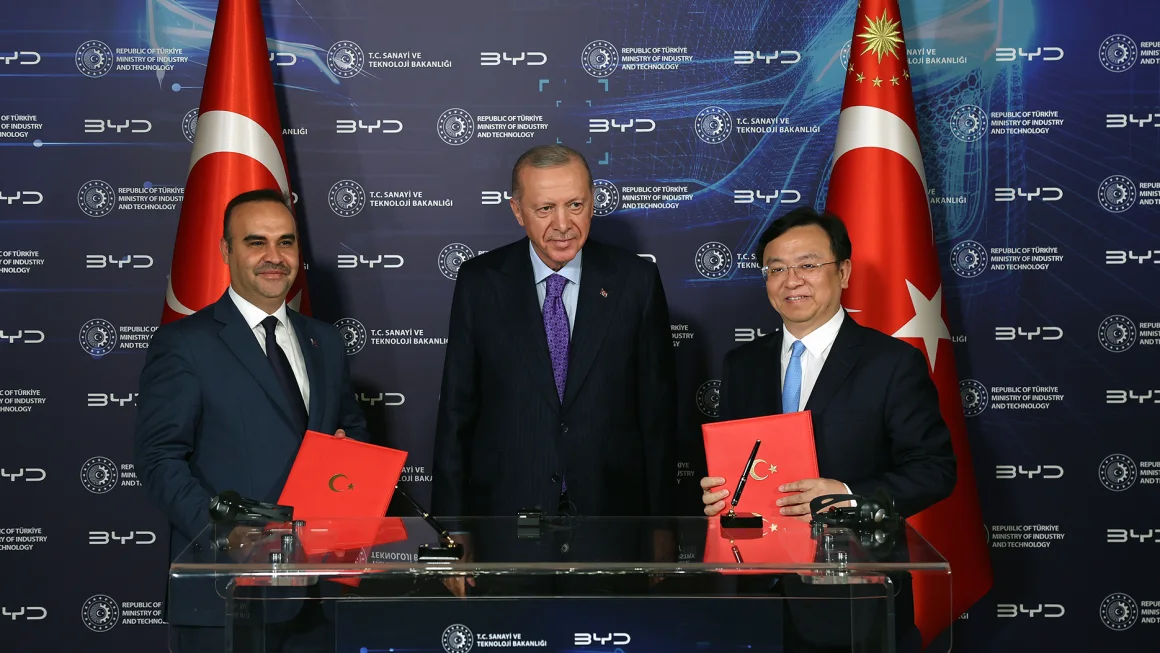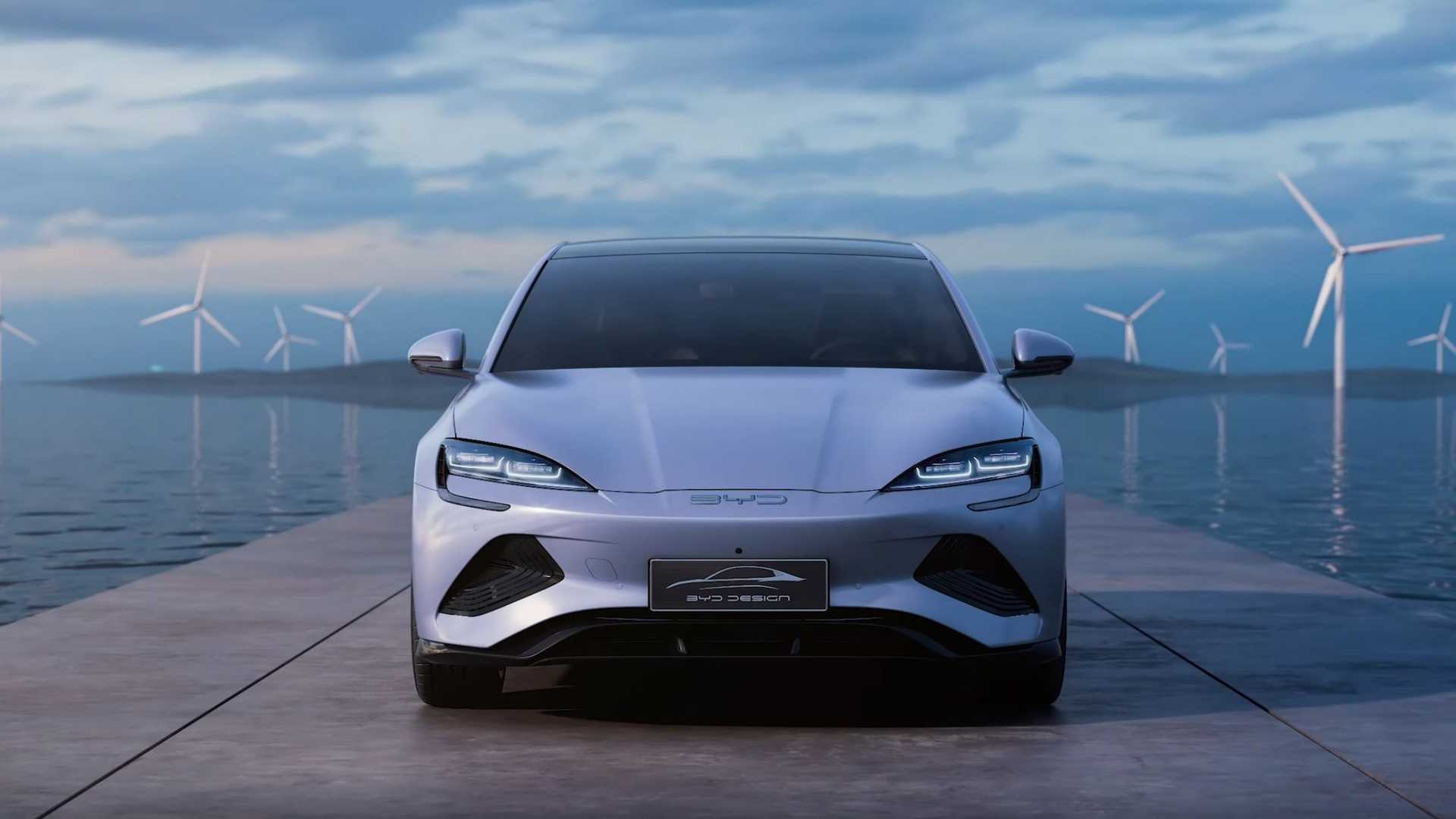China’s biggest electric vehicle maker, BYD, has agreed to a $1bn (£780m) deal to set up a manufacturing plant in Turkey.
According to Turkish state news agency Anadolu, the new plant will be able to produce up to 150,000 electric and hybrid vehicles a year; the facility is expected to create around 5,000 jobs and start production by the end of 2026. The factory will also include a research and development centre for sustainable mobility technologies. The factory is expected to start production at the end of 2026.

According to a statement from the Turkish ministry, BYD’s CEO Wang Chuanfu and Turkey’s Industry and Technology Minister Mehmet Fatih Kaci signed the agreement in Istanbul, with the presence of Turkish President Recep Tayyip Erdogan.
“We aim to meet the growing demand for new-energy vehicles in the region and reach consumers in Europe,” the statement cited BYD representatives as saying, reported by CNN.

Targeting the EU Market
Chinese electric vehicle (EV) manufacturers are facing increasing pressure in both the European Union (EU) and the United States. Last week, the EU raised tariffs on Chinese EVs to protect its motor industry.
As a result, BYD, as a major Chinese EV maker, now faces an additional tariff of 17.4% on vehicles it exports to the EU, on top of the existing 10% import duty.
Turkey, which is part of the EU’s Customs Union, allows vehicles made in Turkey to be exported to the EU to avoid these additional tariffs. Additionally, the Turkish government has imposed a 40% tariff on imports of Chinese vehicles to support its domestic car manufacturers.

This news also comes after the giant EV maker opened a factory in Rayong, Thailand, an industrial area southeast of Bangkok. The factory will be able to build up to 150,000 vehicles a year. In December last year, the company also announced that it would establish an EV factory in Hungary.
This announcement signifies BYD’s commitment to its international expansion. By establishing a second factory in the European Union, BYD aims to strengthen its foothold in the European market and increase its production capacity to meet growing demand. This decision highlights the company’s long-term vision and confidence in its ability to compete globally, ensuring sustained growth and resilience in a challenging economic environment. Despite current market conditions, BYD’s proactive approach underscores its determination to expand its global presence and enhance its competitive edge.


